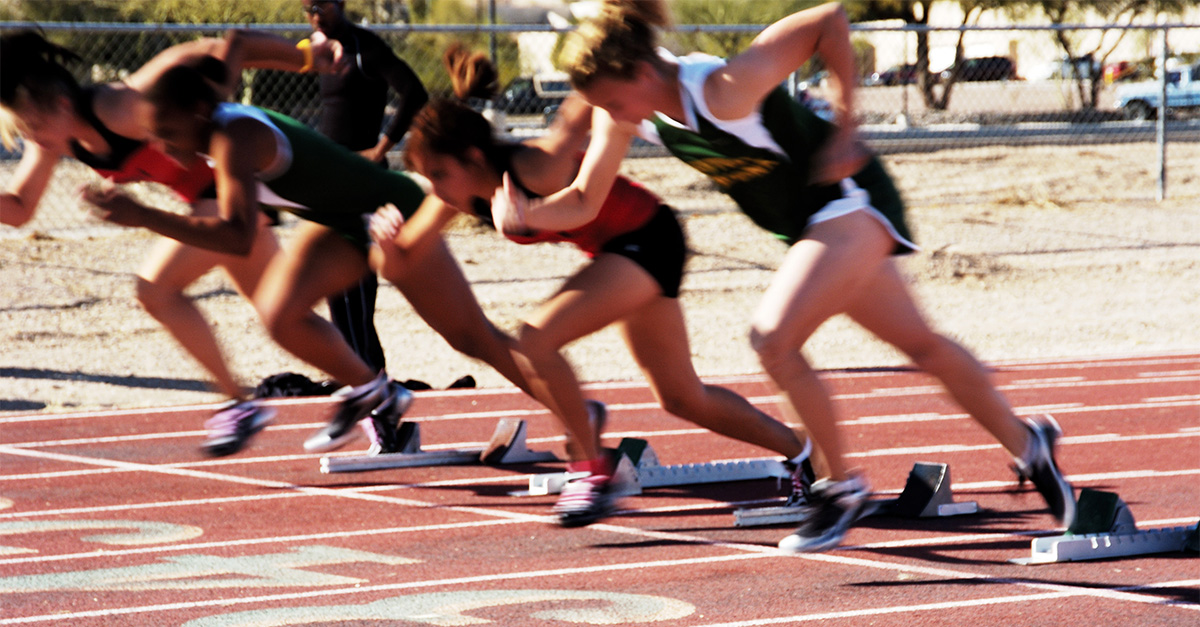


Get a free copy of Parental Rights & Education when you subscribe to our newsletter!

Federal Judge Robert Chatigny threw out a lawsuit brought by four female athletes who sued to stop Connecticut from allowing biological males to compete in women’s sports, with the judge ruling that the case was “not justiciable at this time.”
In 2017, athletes Andraya Yearwood and Terry Miller, biological males who identify as transgender females, began competing in Connecticut high school girls’ track and quickly became dominant, winning 15 championships.
The plaintiffs argued, however, that whether transgender athletes are required to take testosterone-suppressing drugs or not, biological males maintain unfair physiological advantages over their biologically female counterparts. These include “bone size and hip configuration” as well as “muscle mass and strength, bone mineral density, and lung size.”
Chelsea Mitchell, who has since graduated, missed out on four victories that she would have achieved had Yearwood and Miller been barred from competing. Those victories include the 2019 state championship in the 55-meter indoor event.
She called the ruling “discouraging,” adding, “Today’s ruling ignores the physical advantages that male athletes have over female athletes. Female athletes like me should have the opportunity to excel and compete fairly. No girl should have to settle into her starting blocks knowing that, no matter how hard she works, she doesn’t have a fair shot at victory.”
Alanna Smith would have finished second in the Women’s 200-meter event at the 2019 State Outdoor Open. She described the judge’s decision as “disheartening for athletes like me who train hard every day to be our physical and mental best at the starting block.” She continued, “Biological unfairness does not go away because of what someone believes about gender identity. Biology — not identity — is what matters on the field, and that’s why I will continue to stand up to restore fairness to my sport.”
On the other side, Rahsaan Yearwood, the father of one of the transgender athletes, said, “One of our most marginalized communities has the opportunity to rejoice in their authentic being and feel affirmed in doing so.”
Alliance Defending Freedom (ADF) attorney Christiana Holcomb, who represented the female athletes, said,
“Unfortunately, this court has chosen to ignore our clients’ demoralizing experiences of losing to male runners. Girls and women deserve opportunities that are truly equal — without being sidelined or dominated by males choosing to join their sport.”
ADF took issue with Chatigny’s claim that “no real dispute remains” because transgender athletes Yearwood and Miller have since graduated high school. The organization said that its biologically female clients, despite having also graduated, are “legally entitled” to state records that reflect “the places, medals, and championships that they actually earned” and that the current biologically female athletes deserve protection “against unfair competition from biological males in upcoming seasons.”
Judge Chatigny said that while it is “theoretically possible” that Smith and Nicoletti, who have a year of eligibility remaining, may face transgender competition, they would suffer no “legally cognizable injury” unless a biological male competed against them and recorded a better time.
He also rejected the petition to remove Yearwood and Miller from the record book and move the other runners up one position. The biologically female athletes have claimed that their ability to get jobs and college scholarships was hindered by placing behind the biological males.
Chatigny claimed the only athlete whose case for “redressability has some cogency” was Mitchell but said that even if she was awarded the victories, “it seems inevitable” that employers would learn that she did not place first in the events.

This case is a lesson in the theory — and madness — of intersectionality.
Title IX exists to give females equal opportunities in sports and similar nondiscrimination laws are in place due to the historically unequal treatment women received. Under intersectionality, however, women are only deemed worthy of protection if their case is against white, straight, and cisgender men. Intersectionality creates a hierarchy of victimhood, with women above men, but transgender females (biological men) are elevated above biological women.
This belief is seen in Rahsaan Yearwood’s comments claiming that transgenders are “one of our most marginalized communities.” The message is clear to women and girls: You deserve equal opportunity, unless someone with a higher victim status is involved. Clearly, the left doesn’t care about women. It cares only about pushing the divisive concept of intersectionality to advance their agenda.
And based on his comments, Judge Chatigny was either never an athlete or has forgotten what it feels like to work hard to be the best you can be and prove your ability in a fair competition. As Soule said, “During all four years of high school, I worked incredibly hard to shave fractions of a second off my time, only to lose to athletes who had an unfair physical advantage.”
Allowing cheaters to prosper — whether it is Lance Armstrong taking performance-enhancing drugs to win an international cycling competition against other men or biological men unfairly competing against high school women — is a surefire way to not only demoralize athletes but also to destroy any of the virtue, honor, and character that sports competition is supposed to promote.
These women athletes in Connecticut deserved a fair shot to win, but instead they were irreparably harmed by an unfair practice that allows transgender athletes to have an overwhelming advantage — and now they’ve been further harmed by a judge who doesn’t seem to understand anything about basic biology or the nature of competition.

Notifications